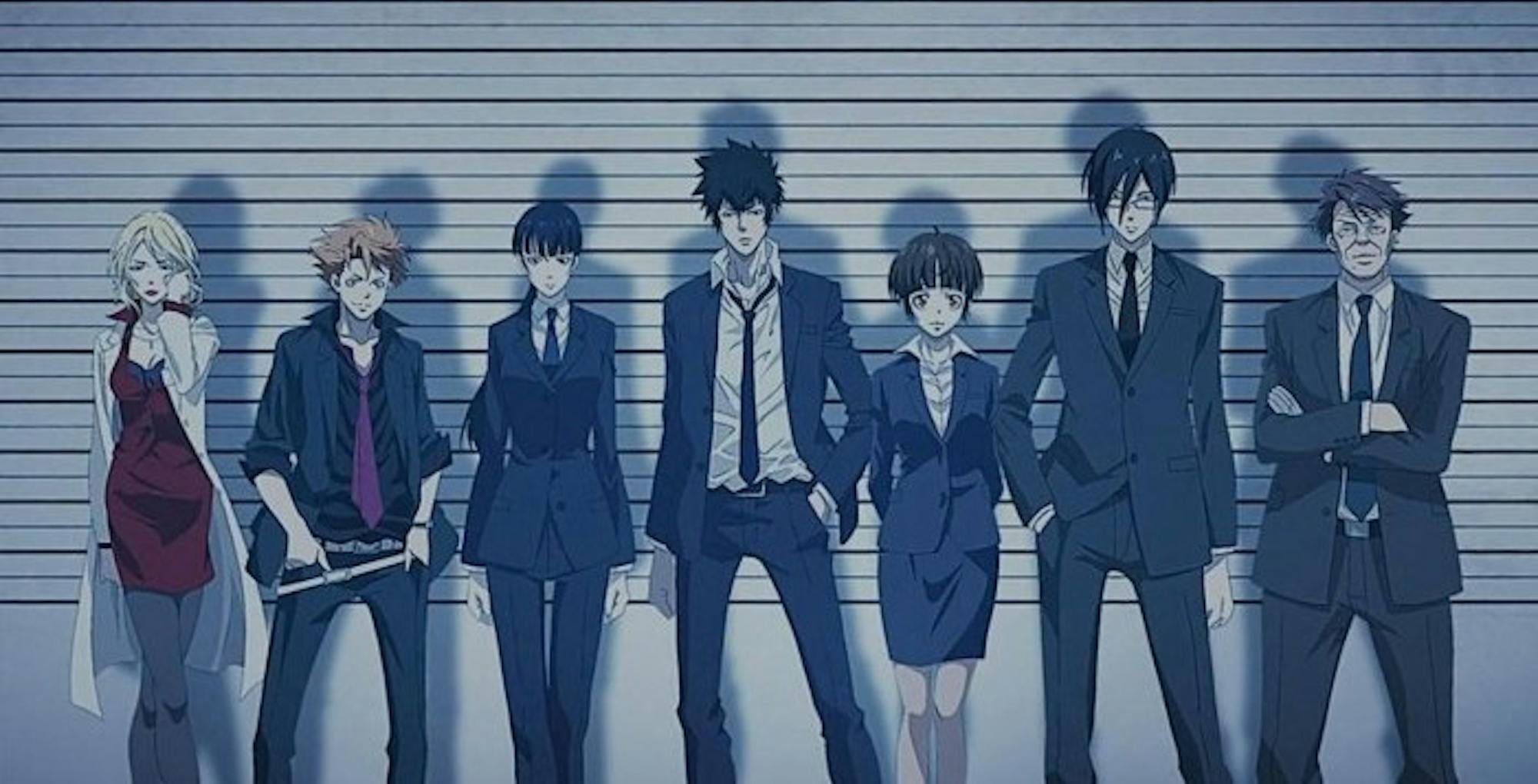
By Erin Penney
Staff Writer
Have you ever thought to yourself, "Gee, the present times sure are disappointing. I can't wait for the future!"?
Well ask no longer!
Psycho-Pass is here to assure you that the future is just as bleak, painful and unfair as the here and now (but with cooler weapons).
Fans of the crime-drama anime Psycho-Pass are currently in the middle of enjoying the second season of the series (which premiered earlier this fall) but that doesn't mean it's too late for the unfamiliar to catch up.
The show is set in the year 2113, a time when individuals' mental states and aptitudes are monitored by an omniscient presence called the "Sybil System."
One of the aspects evaluated by the Sibyl System is a person's Crime Coefficient, a number which measures their potential for committing criminal acts.
In this harsh world, the young, plucky protagonist Akane Tsunemori begins her career as an Inspector for the Public Safety Bureau. Her fellow Inspector, the by-the-book Nobuchika Ginoza, introduces her to the Enforcers, or "hunting dogs" of the investigation team.
Due to their high Crime Coefficients, Enforcers understand that criminals think in a way an Inspector cannot (hence why they are called "hunting dogs").
However, their high Crime Coefficients mean that they are considered to be dangerous individuals and they are under constant, close supervision.
Together, the Inspectors and Enforcers track down criminals and bring them to justice.
At first glance, Psycho-Pass seems like a standard cop drama with a pinch of dystopian atmosphere and that's honestly what it feels like when you first start watching it.
But then you reach the end of the first episode and you have to watch the next one.
And then the next one. And then the next one.
Several hours have passed and you haven't moved, your legs have fallen asleep, oh wait it's 3 a.m., you've missed so many calls and texts, and we're all very worried about you.
You reach the last episode of the first season in the blink of an eye.
So, what makes this show so bingeable?
Psycho-Pass throws the viewer through a bunch of loops you wouldn't expect.
In the beginning, you find yourself among the standard cast of cop show characters: the rookie, the stickler, the quiet one obsessed with an unsolved case, etc.
All that's missing is the cop who gets shot one day before retirement.
However, the characters not only grow on you but they become increasingly complex as the series progresses.
The character arcs are not what you would expect judging by the stereotypes you've seen before.
Yes, there are a few uninteresting twists but, for the most part, you'll be pleasantly surprised with what this show throws your way.
The animation and style do well to convey the dark, gritty tone of the show without becoming overbearing. The brighter side of the show lets you understand why people would trust something like the Sibyl System in the first place while the darker part of the show demonstrates its consequences.
The art is nothing particularly innovative, in the way that it doesn't have a style different from many other animes out there, but it is very well done nonetheless.
If you're looking for a "solve-as-you-go" sleuth drama, Psycho-Pass probably isn't your bag.
While a lot of the show focuses on the detective work, the viewer gets a pretty equal view of both sides of an investigation: the investigators and the perpetrators.
This is a pretty strong move that even the most well-received and boundary-pushing crime shows wouldn't make.
So much of crime drama rides on the intrigue of what you don't know about the actual crime but Psycho-Pass boldly pushes this convention out the window (and will tell you how they got away with it, too).
Instead, the intrigue of the show is more reliant on character motivations and how they choose to operate within a society as restrictive as theirs. Who's good? Who's evil? Who cares? (Answer: you care.)
As much as I would love for this series to get more attention, I don't want to overpraise it because it's certainly not without its flaws.
Some of the world-building is admittedly flimsy and the reasoning behind the existence of the Sibyl System is your standard dystopian, Big-Brother-is-watching explanation.
Also, while many of the characters break out of the stereotypes they were given in the pilot, there are still quite a few characters that have predictable arcs or are just plain uninteresting.There were a few times I thought I was seeing a new character but they had been there since the first episode. And then I would keep forgetting about them until they showed up on screen again to remind me of what little personality they had.
Psycho-Pass may not be the best of its genre, but it's still a fascinating gem of a show.
It's one of the most satisfying weekend-watches I've had in a while. This dystopian crime drama will keep you on your toes from start to finish. Check it out before the year 2113 rears its ugly head.
– By Erin Penney, Contributing Writer
'Psycho-Pass' Passes with Flying Colors
The second season of Fuji Television Network's crime-drama anime "Psycho-Pass" is currently airing in Japan, with Hulu access for American fans. Courtesy of Fuji Television Network.







